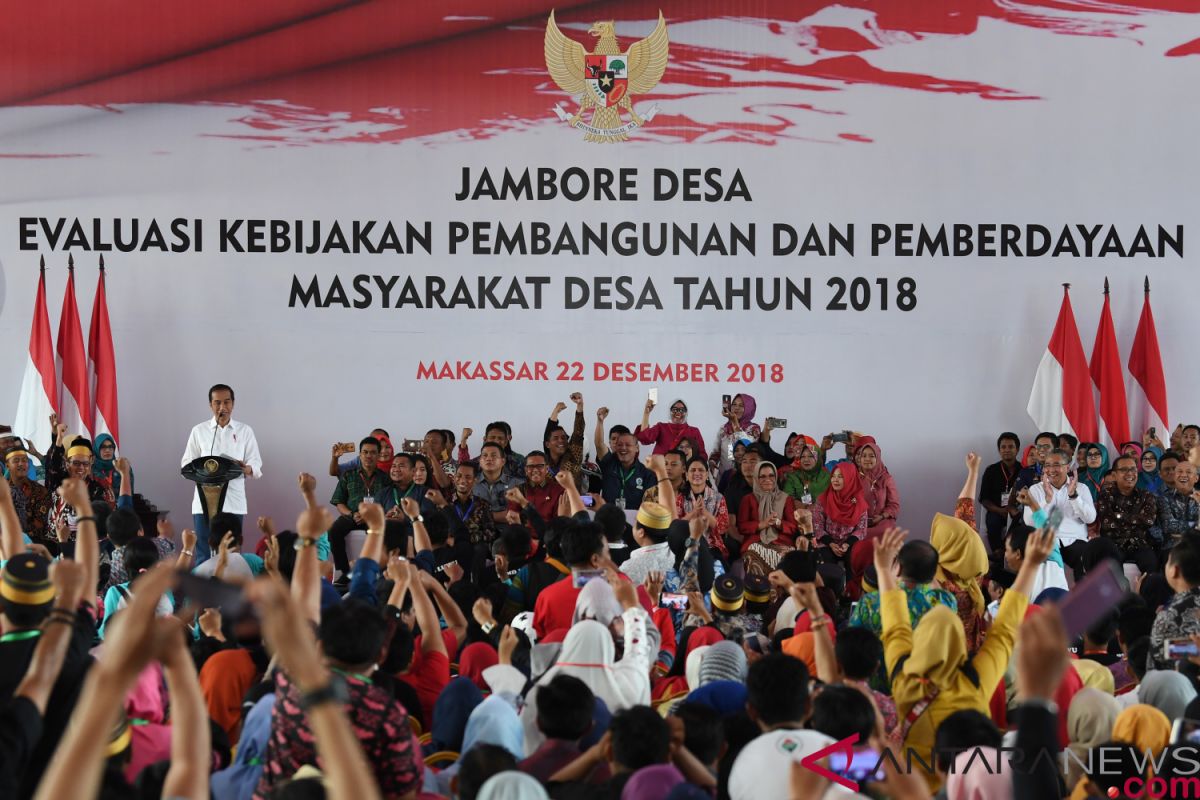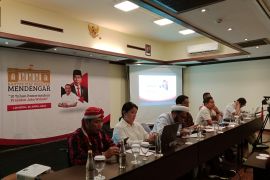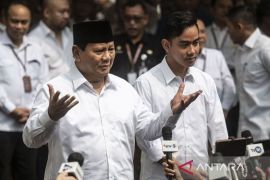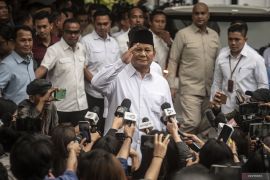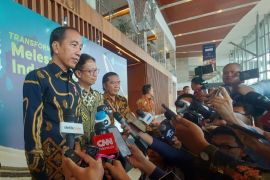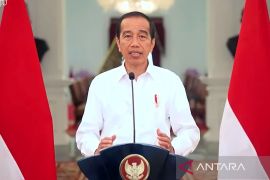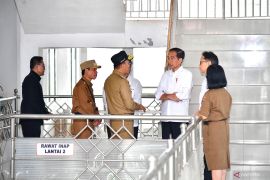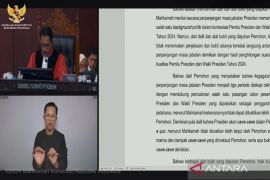"Every year, we will increase the village funds, from Rp20.7 trillion in 2015, Rp47 trillion in 2016, Rp60 trillion in 2017, and Rp60 trillion in 2018, to Rp70 trillion next year. We will continue to increase it again in the years ahead," President Widodo noted at Wisma Negara Makassar on Saturday.
The president made the statement at the Village Community Development and Empowerment Policy Evaluation Jamboree event in 2018. The event was also attended by First Lady Iriana; Minister of Village, Development of Disadvantaged Areas and Transmigration Eko Putro Sandjojo; South Sulawesi Governor Nurdin Abdullah; and other officials.
"I entrusted the utilization of village funds to be discussed but must really focus on ensuring that there are benefits for the villages, in the form of development of village roads if necessary repairing roads that were muddy, to build a village market if there really are benefits, and then build irrigation channels in order to drain the rice fields but to not let the use of village funds go astray," the president noted.
The president also reminded the village heads and assistants of village heads to be careful about utilizing village funds that had totaled Rp187 trillion for the 2015-2018 period.
"Be careful, this money is a big amount, Rp187 trillion for four years is a large sum of money. Never in our history as a nation has this much money been poured into the villages, never. I was careful while utilizing this fund in the right way. Focus on target and according to the village needs," the president remarked.
According to the president, village funds worth Rp187 trillion have been proven to reduce rural poverty, from 13.47 percent in 2017 to 13.2 percent in March 2018.
"Next year, the strategy must be shifted to empowering the village economy," the president added.
The point is that in addition to building infrastructure, the president requested that the village community drive the public`s economic activities to increase the people`s income from the village funds.
"For instance, there is a village, with a reservoir, which can serve as a tourist village. Let us take an example of a village in Central Java called Ponggok that has a reservoir that can then serve as a tourist place. Hence, how much in a year can the `income` be? Rp14 billion," the president stated.
Ponggok is a village in Klaten, Central Java. One of the allocations of village funds was channeled for the development of Village-Owned Enterprises (BUMDes), for instance, to manage the Umbul Ponggok tourism.
BUMDes Tirta Mandiri manages Umbul Ponggok tours, Village Shops, Ponggok Ciblon, and aquaculture. In 2013, its income had only reached Rp211 million, up to Rp1.1 billion in 2014, soaring to Rp10.3 billion in 2016 and reaching some Rp14 billion in 2017.
"More villages in Yogya, Nglanggeran Village, Gunung Jidul, made into tourist villages a year can earn an `income.` How much is the (value) minister? Rp8 billion," the president stated.
There are two attractions in Nglanggeran Village, specifically ancient volcanoes and large ponds like lakes, at an altitude of 500 meters above sea level, covering five thousand square meters.
"We have to start thinking in that direction, which means that investment from village funds, village budget funds also bring money back through tourist attractions. Here (South Sulawesi) can also be developed for farming and maintaining something, such as catfish, starting there, so that the village economy can improve, "the president added.
In the meantime, Indonesia Corruption Watch (ICW) has said that village funds are prone to misuse, with dozens of local officials currently facing money swindling charges.
"At least 110 village fund graft cases are currently being investigated by the law enforcement apparatus," ICW researcher Egi Primayogha informed reporters at a press briefing as quoted by Tribunnews.com.
The ICW has found the cases involved a total of 139 individuals, of which 107 are village heads, while the rest are village officials and the village chiefs` wives.
Hence, the government is assessing a new scheme expected to start next year for village funds in a bid to boost the purchasing power of low-income communities. With the new scheme, called Cash for Work, the government will measure whether the disbursement of village funds effectively absorbed workers, a high-ranking official stated recently.
"The point is, we will direct the funds to various (village) activities, but they have to involve as many workers as possible," the Finance Ministry`s budget director general Askolani remarked.
Once the new scheme is launched, the government will shift its monitoring on whether the funded projects were able to create jobs, eventually reducing the unemployment rates and alleviating poverty.
Editing by Suharto
Reporter: Eliswan Azly
Editor: Yosep Hariyadi
Copyright © ANTARA 2018
